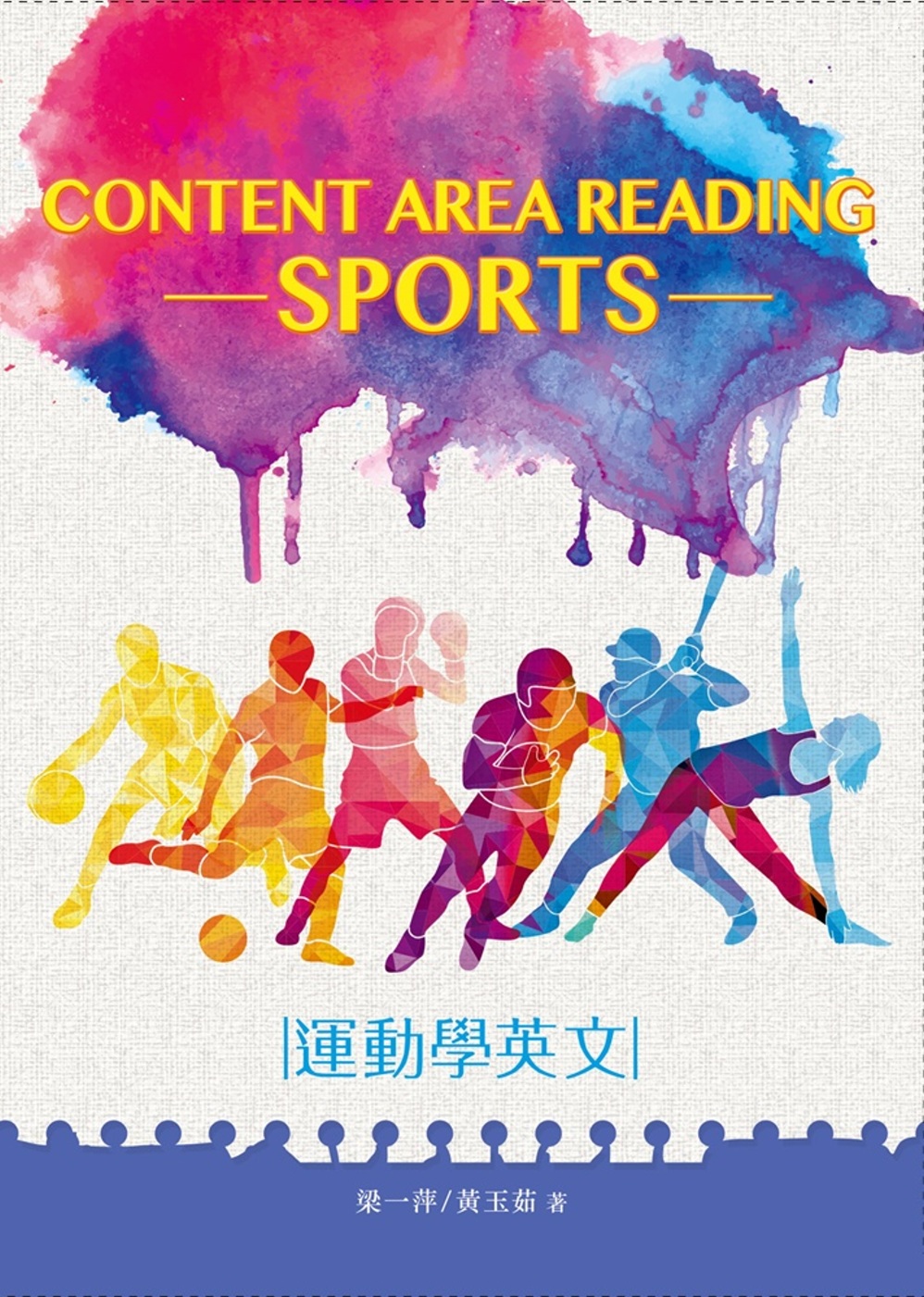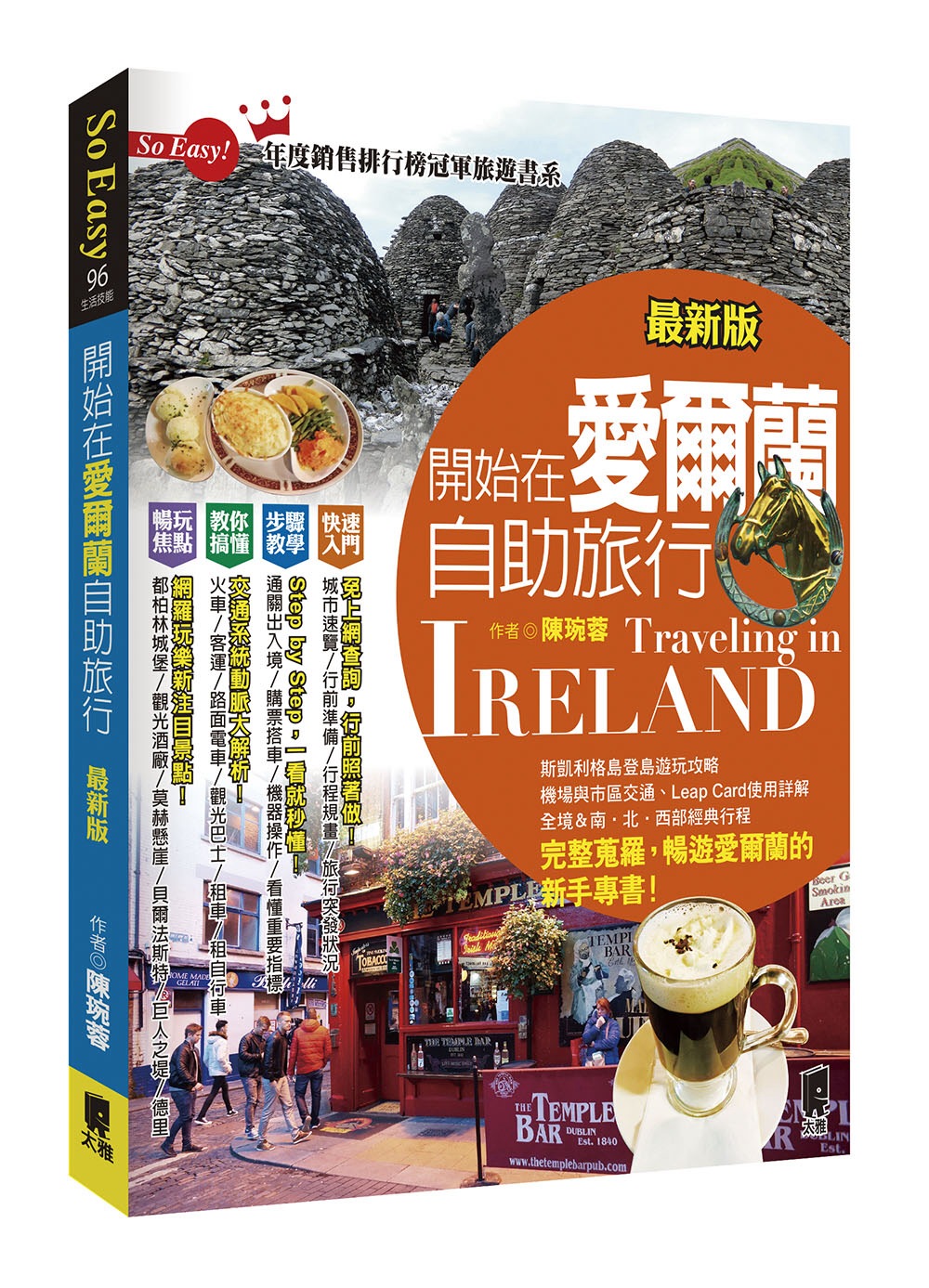運動學英文 | 運動資訊第一站 - 2024年11月

運動學英文
棒球的前身來自何處?桌球如何誕生?為何奧運的舉辦常一波三折?本書用13篇有趣又深入淺出的短文簡介不同運動的規則與歷史,除了有豐富的運動單字,每單元末還有習題幫助複習。是一本授課、自學兩相宜的英語教材,讓讀者輕鬆用運動學英文。
ESP(English for Specific Purposes)為1990年代興起至今的英語教育觀念,強調英語學習內容應在各種專業領域下「言之有物」的實境文本,一般稱為專業英文。學習各種Content Area Reading、跨學科英文等,能彌補以往英語教學脫離生活應用的缺點。書林旗下品牌簡單出版於2005年起曾出版「ESP知識英文」系列書籍,主題有美術、宗教、理財等等,廣受好評。
國立臺灣師範大學英語學系於2015年開始研發ESP教材,並獲教育部計畫支持,由英文系教授及專業教師共同編寫各種主題,並經過實際教學場景應用,涵蓋音樂、運動、時尚等多樣領域。本書針對台灣學生學英語的需求,編寫主題短文,並設計簡單練習、關鍵字彙註釋及參考中譯,能幫助學生快速吸收、輕鬆理解內容,盼能啟發讀者用英文探索知識,並從中獲得學習的樂趣。
本書特色
1、13篇附上中譯的短文,閱讀過程中迅速學會用英語表達運動知識。
2、各單元皆有習題測驗,檢視學習成效,輕鬆背好單字。
3、內容包含運動歷史、文化及應用層面,學英文之餘也長知識。
作者簡介
梁一萍
美國麻薩諸塞大學美國研究博士,現為國立台灣師範大學英語系專任教授,編著有《鬼舞:美國原住民誌異小說》、《亞/美之間:亞美文學在臺灣》、《移動之民:海外華人研究的新視野》等書。
黃玉茹
現為國立台灣師範大學英語系文學組博士生及兼職講師,專長為女性主義、心理分析、失能研究及英文寫作等。曾赴美國密蘇里州立大學交換一年、賓夕維尼亞州立大學研究訪問半年。英語教學經驗豐富,獨創以學生興趣為主的差異化教學法。
01 –
Introduction 認識運動
“What is Music?” 008
02 –
Olympic Games奧林匹克運動會
“History of the Olympic Games” 014
03 –
Baseball I 棒球(一)
“The Humble Origins of Baseball” 020
04 –
Baseball II 棒球(二)
“Taiwan Baseball Film, Kano” 026
05 –
Basketball 籃球
“ Basketball and Some Famous
NBA Figures” 032
06 –
Badminton 羽毛球
“Getting Started with Badminton” 038
07 –
Table Tennis 桌球
“From High Society to High Speed” 044
08 –
Soccer 足球
“Soccer and David Beckham” 050
09 –
American Football 美式足球
“ The Charm and Controversy of
American Football” 056
10 –
Triathlon 三項全能
“Swimming, Cycling, and Running” 062
11 –
Combat Sports and Weightlifting 格鬥運動與舉重
“ Sports that Center on Bodily Strengths” 068
12 –
Yoga 瑜伽
“The Beauty of Yoga” 074
13 –
New Trends新潮流
“HIIT―High Intensity Interval Training” 080
Answer Keys 解答 086
01 IntroductionAn Introduction to Sports The term “sports” has a broad meaning. In its most generic sense, sports are athletic games or contests put on to entertain players and spectators. Sports such as hunting, fishing, running, and swimming are derived from the essential chores of primitive life. Other sports such as riding, shooting, javelin and archery have their roots in the requirements of early military life. And yet even further, other sports such as boxing, wrestling and jumping came from the challenges that grew out of ordinary human interaction. Every known culture has had sports in one form or another, although the exact origins of many specific sports are unclear. Ancient Egyptians swam, raced, wrestled and had ball games, and ancient Greeks held large sports festivals. One such festival was the Olympic Games, attracting athletes from the far corners of city-states. Much like modern day dog races or F1 racing, the Greeks (and later the Romans) held competitions that used animals, or men behind machines; such competitions required talents more than mere physical prowess. In modern times, industrialized societies expanded their conviction that sports were not just useful, but an essential, character-building pursuit of man. Sports that were traditionally played in specific regions or areas became important national sports (baseball for the US, bullfighting for Spain, sumo for Japan, etc.), and the rebirth of the Olympic Games in 1896 helped focus the world’s fixation on both sports and athleticism.
 開始在愛爾蘭自助旅行(最新版)
開始在愛爾蘭自助旅行(最新版) 開始在愛爾蘭自助旅行
開始在愛爾蘭自助旅行